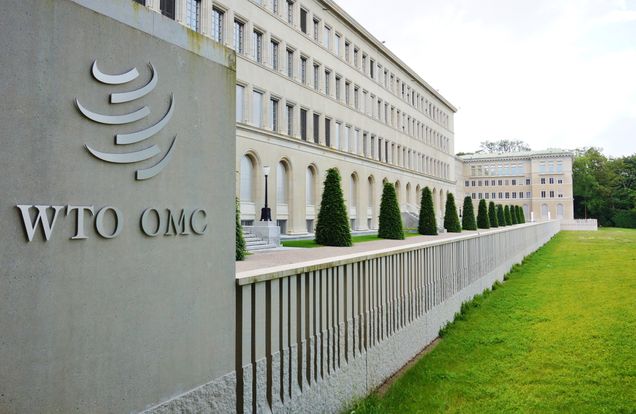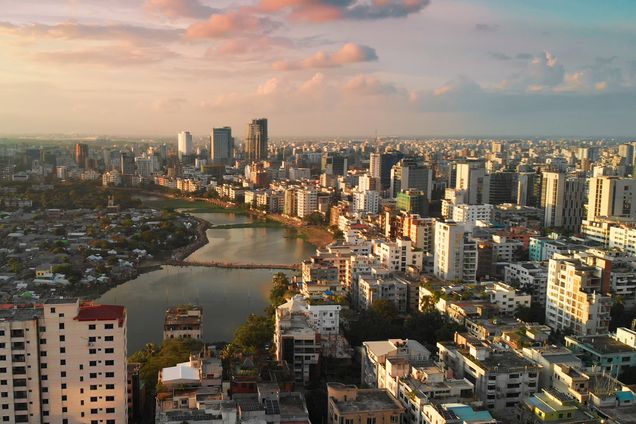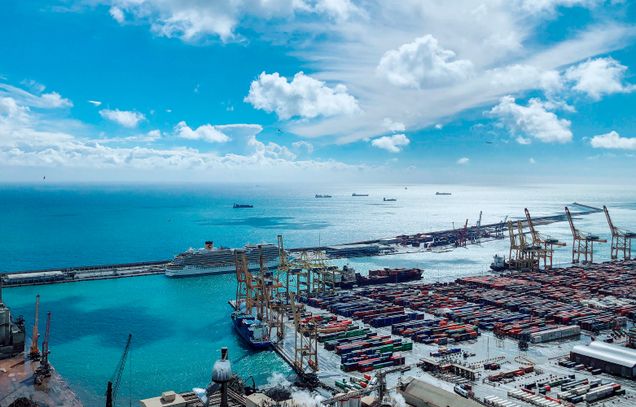GDP Center Round-Up: World Trade Organization Ministerial Conference (MC12)

By Samantha Igo
The 12th World Trade Organization (WTO) Ministerial Conference (MC12) convenes this week, June 12-15, following multiple postponements of the conference due to the COVID-19 pandemic. Against the backdrop of a lagging global vaccination effort, divergent economic recoveries and worsening climate change, trade ministers and other senior officials from the WTO’s 164 member countries will gather to discuss the future of the international trading system and the chance to prioritize public needs and advance efforts for economic and trade equity, human well-being and environmental sustainability.
Experts in international trade, intellectual property and public health at the Boston University Global Development Policy Center have produced extensive research examining the shrinking of policy space for health and industrial policy in the international trade regime and how this trajectory could be reversed and efforts for economic and trade equity, human well-being and environmental sustainability advanced.
Below, explore our latest trade-related research:
Policy Responses to COVID-19: Lessons for the Global Trade and Investment Regime

Governments everywhere have implemented policies to mitigate the health, social and economic impacts of the pandemic, some of which could contravene WTO trade rules. In December 2021, the Working Group on Trade Treaties and Access to Medicines released a new report investigating the relationship between global trade and investment rules and COVID-19 policy responses by a sample of six large countries – the United States, Germany, France, China, South Africa and India. From a trade policy perspective, the interventions taken to mitigate the impact of COVID-19 present an important opportunity to identify aspects of existing trade rules that may interfere with appropriate pandemic crisis responses and areas where those rules should be reformed. In all, the authors find the tension between government policy interventions and the rules of international trade and investments has risked greater health inequality around the world, not to mention economic instability and widening the gap between low- and high-income countries. Read the report.
Investor-State Disputes Threaten the Global Green Energy Transition

What are the legal and financial risks associated with potential government action to limit oil and gas production? A new study published in Science by a team of researchers at the Boston University Global Development Policy Center, Colorado State University and Queen’s University in Canada estimates the costs of possible legal claims from oil and gas investors in response to government actions to limit fossil fuels. They find legal claims could reach $340 billion, a substantial amount that would divert critical public finance from essential mitigation and adaptation efforts to the pockets of fossil fuel industry investors. Read the journal article and read the blog.
Constraining Development: the Shrinking of Policy Space in the International Trade Regime

In the wake of the COVID-19 pandemic and growing climate crisis, it is becoming increasingly apparent that there is an unresolved tension between the network of rules that make up the global trading system and the individual members of that system. The new book by Rachel Thrasher, Constraining Development: the Shrinking Policy Space in the International Trade Regime, explores these troubling trends in treaty-making and international jurisprudence. She explains how the global trading system presents obstacles to national governments in making or maintaining the policies to promote domestic economic growth, financial stability, debt sustainability, public health and environmental protection. Read the book.
Three Pillars of Vaccine Equity: Triaging the Global Vaccination Challenge

In a 2021 policy brief, Katie Gallogly-Swan and Rachel Thrasher argue meeting the global vaccination challenge will require attention to three pillars of vaccine equity, all of which must be advanced simultaneously: a TRIPS waiver to cut through the intellectual property rights that deter new production; technology transfer from vaccine originators to regionally distributed manufacturing hubs; and robust financing measures to upgrade production facilities and improve vaccine distribution worldwide. The authors stress only a comprehensive approach that advances on all three fronts will transform the outlook for vaccine equity and build resilience and collaboration. Read the policy brief.
One Step Forward, Two Steps Back? Ensuring a TRIPS Waiver Drives Health Equity

In March 2022, following a 17-month impasse, India, South Africa, the United States and the European Union negotiated a preliminary text for a much-anticipated TRIPS waiver for COVID-19 vaccines. While a significant milestone in the effort to vaccinate the world from COVID-19, the scope of the proposal matters greatly to its utility. As of now, the scope is narrow, with a focus on vaccine patent protection only, though there is room for expansion over the next six months. What does the text currently include? How could it be expanded to allow for maximum impact and what does it mean for the global fight against COVID-19? Rachel Thrasher provides a breakdown assessment of the text. Read the blog.
Policy Space for Building Production Capabilities in the Pharmaceuticals Sector in Low- and Middle-Income Countries: Evidence from Bangladesh

Policies implemented by the Bangladesh government have strengthened its pharmaceutical sector, but to what extent would Bangladesh have been able to deploy their policy mix if the country was not exempt from these trade rules? Given Bangladesh’s status as a Least Developed Country (LDC), it has been exempt from more stringent aspects of WTO agreements. But with graduation from LDC status on the horizon, Mustafizur Rahman, Veronika Wirtz, Warren Kaplan, Rachel Thrasher and Kevin P. Gallagher assesses the current state of Bangladesh’s policies and the implications of coming under the umbrella of international trade and investment rules on the future growth of its pharmaceutical sector. Read the journal article.
The Social Costs of Success: The Impact of World Trade Organization Rules on Insulin Prices in Bangladesh upon Graduation from Least Developed Country Status

In a new journal article, Md. Deen Islam, Warren A. Kaplan, Veronika J. Wirtz and Kevin P. Gallagher examine Bangladesh’s impending graduating from Least Developed Country (LDC) status will impact the price of insulin, a lifesaving medicine for individuals with diabetes, and the subsequent impacts on welfare and poverty. The authors find that LDC graduation will trigger a significant jump in insulin prices that could cause about a 15 percent decline in the welfare of households in Bangladesh with one or more members living with diabetes. The price jump could subsequently increase the poverty rate of these households by 54 to 58 percent, unless policy adjustments are carried out. The study says better data collection is necessary to raise awareness of graduation risks in Bangladesh, but also in other countries and economics more broadly. Read the journal article and read the blog.
Trading Away Industrialization? Contexts and Prospects of the EU-MERCOSUR Agreement

The EU-MERCOSUR free trade agreement (FTA) has yet to take effect, but would represent the largest trade deal for both the European Union (EU) and the MERCOSUR countries of South America in terms of number of citizens involved. While previous studies have made projections for the FTA’s impacts, none have taken into account how it would interact with adverse trends in employment, wage inequality and productivity growth among the blocs’ economies. In a 2021 working paper, Jeronim Capaldo and Özlem Ömer analyzed the contexts and prospects of the FTA in Argentina, Brazil, France, Germany, Italy and other select countries, concluding that the agreement is likely to be a step toward less productive, more unequal and more vulnerable economies in both regions. Read the working paper.
*
Never miss an update: Subscribe to the Global Economic Governance Newsletter.